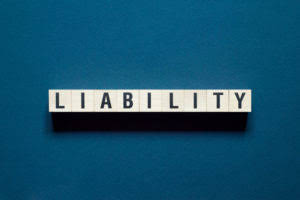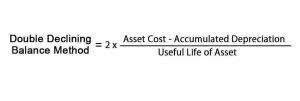
Banks may inadvertently honor stale-dated or voided checks, violating policies or exposing themselves to disputes. Additionally, banks must comply with anti-money laundering (AML) regulations, which may require additional scrutiny of long-outstanding checks. Strong internal controls and clear communication among all parties are essential to mitigate these risks. At Eisen, we are committed to simplifying the escheatment process for financial institutions. Our Escheatment Hub automates key aspects of managing outstanding checks, ensuring effortless and reliable compliance.
- Our Escheatment Hub automates key aspects of managing outstanding checks, ensuring effortless and reliable compliance.
- Gain comprehensive visibility into all your accounts with Eisen’s intuitive dashboard.
- Our system schedules tasks and notifications so you can focus on other priorities with the confidence that no deadline will be overlooked.
- For example, voiding a check without notifying the payee could result in claims for non-payment.
- These adjustments bridge the gap between the bank statement and the company’s ledger, accurately reflecting the cash position.
- Official bank checks are used more and more by individuals to make payments on or to pay off debts.
Keep Records
Void checks require careful documentation and accounting adjustments to maintain accurate financial records. In some jurisdictions, uncashed checks may be classified as unclaimed property, requiring outstanding checks compliance with escheatment laws. These laws mandate businesses to remit unclaimed funds to the state after a specified dormancy period.

Bank Reconciliation Impact

Some checks become stale if dated after 60 or 90 days, while others become void after six months. After remitting funds, update your accounting records to reflect the escheatment. Adjust ledger entries and clear the outstanding checks from your open liabilities. At this point, you’ll prepare reports for each state where unclaimed property exists. These reports must include detailed information about the outstanding income statement checks and the steps taken to contact the owners.
What Are Some Best Practices for Managing and Clearing Outstanding Checks?
- Checks that remain outstanding for long periods of time cannot be cashed as they become void.
- Someone else could be able to change the payee name or the amount if a check is misplaced or stolen before it is taken to the bank.
- In this context, an outstanding check need not be outstanding for long; it may simply be the short period of time between when a check is mailed and when it is received.
- As mentioned above, you may need to return the original check or sign documents confirming the check is lost or destroyed.
- Some checks become stale if dated after 60 or 90 days, while others become void after six months.
- Through the use of the check, the sender and the recipient of the payment are able to retain a record of the transaction, which includes the date, the amount, and the payee.
- Furthermore, checks that are never cashed may constitute “unclaimed property” that is turned over to the state.
Alternatively, if you both use the same bank or credit union, the transaction will conclude when the money is transferred from your account into the payee’s account. Bouncing an outstanding check can lead to financial consequences, such as fees imposed by the bank, damage to your credit rating, and potential legal actions from the payee. Be mindful of what outstanding checks you’ve written before drawing down your bank balance. When a business writes a check, it deducts the amount from the appropriate general ledger cash account. If the funds have not been withdrawn or cashed by the payee, the company’s bank account will be overstated and have a larger balance than the general ledger entry. With banking activity becoming increasingly electronic, another way to avoid writing a check and forgetting about it is to use the checking account’s online bill pay service.
- After remitting funds, update your accounting records to reflect the escheatment.
- Now, you remit unclaimed funds to the appropriate state agency based on local deadlines.
- At first glance, this may seem like a positive turn of events for the payer.
- They represent pending transactions where the funds have not yet been deducted from the issuer’s account.
- Outstanding personal checks can cause budgeting problems, but you may have an easier time reminding a friend or family member to cash a check than a business payee.
- In some jurisdictions, uncashed checks may be classified as unclaimed property, requiring compliance with escheatment laws.
Even if the checkwriter has sufficient funds, any delay from the depositor simply means higher interest revenue on the capital balance waiting to be drawn down. Outstanding checks affect the accuracy of account balances, leading to potential misinterpretations of available funds. When a check is issued, the payer’s account balance is reduced by the check amount, even though the funds have not been withdrawn by the payee.

This means that the bank balance will be greater than the company’s true amount of cash. Gain comprehensive visibility into all your accounts with Eisen’s intuitive dashboard. Monitor the status of all your checks effortlessly with our Stale Check Manager. By consolidating all the information in one place, you can quickly identify outstanding checks that require attention and take prompt action, mitigating compliance risks. You have to make a good-faith effort to contact the property owner to ensure they can claim it. This typically includes sending written notices to the payee’s last known address within a specified time frame prior to escheatment.
Be mindful of post office conditions and potential delays for seasonality, weather, or staffing issues. Deadlines are critical in the escheatment process; missing them can result in costly penalties. Eisen’s automated alerts and reminders keep you informed of upcoming due dates specific to each state’s requirements.
Understand State-Specific Dormancy Periods
They represent pending transactions where the funds have not yet been deducted from the issuer’s account. These checks can pose risks such as overdrawing the account, potential fraud, accounting discrepancies, and virtual accountant delayed financial reporting. An official bank check is one that is issued by a bank on your behalf that serves as a guarantee of funds. The funds are first withdrawn from your account before the check is issued to you.
